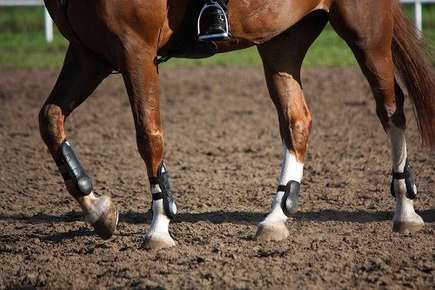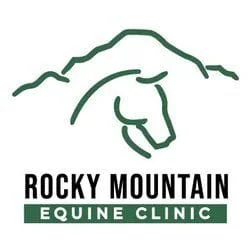
Have you noticed changes in your horse's gait? Are they showing signs of fatigue or are disinterested in exercising? Equine laminitis is inflammation of the sensitive and insensitive laminae in horse's feet and generally occurs bilaterally in the front feet. This multi-faceted issue tends to run in heavier breeds such as draft horses as well as morgans, ponies, miniature horses and donkeys. Because laminae protect the coffin bone, when it is weakened, the wall to bone connection can become disrupted and sink. This situation can eventually lead to penetration of the sole. Your horse does not have to live with this painful condition. Particular equine lifestyle concerns such as nutrition play one of the most significant roles in how laminitis develops and is controlled.
While certain risk factors such as Cushing's Disease, severe colic, other injuries that affect gait and high fever can significantly contribute to the formation of laminitis, many horse owners are shocked to learn their feeding rituals could be the major cause of the condition. Allowing horses to grain-load by feeding themselves without supervision or feeding excessive amounts all at once are serious risk factors that often lead to equine laminitis. While changing feeding behavior immediately can significantly help prevent future inflammation, damaging effects to the laminae may have set in.
If your horse exhibits the following, they may be experiencing laminitis:
• Reluctance to follow owners while being led and propensity to lie down during activity
• Will appear to have transitioned weight to back legs with back legs further forward
• Hooves may be warmer than normal with bounding pulses in the affected legs
• Pain response upon applying pressure to the foot
Even if your horse is not currently suffering from laminitis, prevent the condition now by observing their eating behavior. Consider a dry area where grass has been removed if you notice your horse excessively eating grass or create an area for your horse to roam that takes longer for them to reach the grass. A feeding muzzle will also allow your horse to graze, but in much smaller amounts. Limiting or removing their grain intake and alternating to beet sugar can also ensure your horse receives adequate nutrition, but without causing digestive inflammation that leads to laminitis.
Is your horse suffering from laminitis? A comprehensive treatment approach that focuses on reducing pain, modulating inflammation and improving overall stability is most ideal. Talk to your veterinarian for a specific treatment plan.
